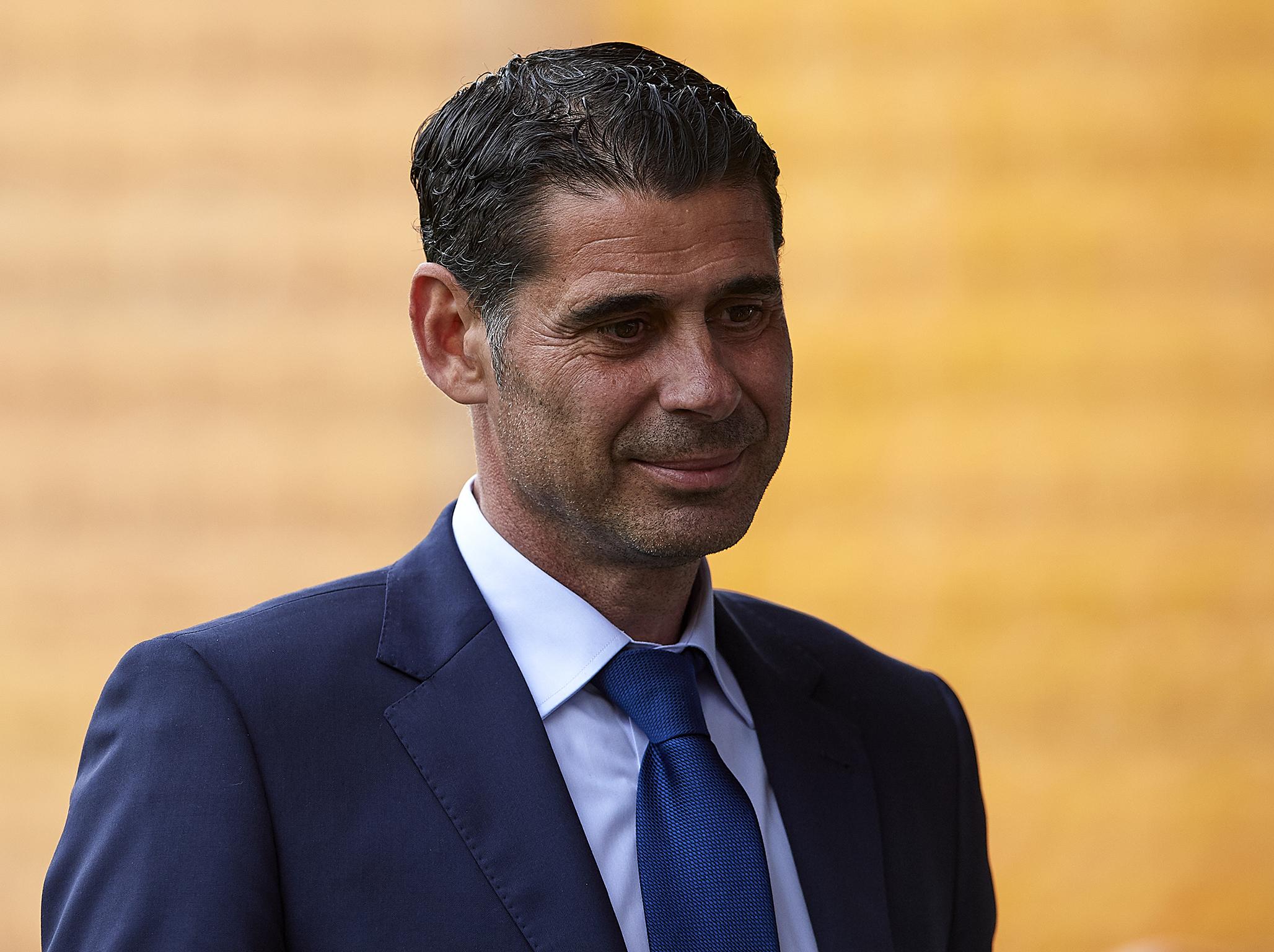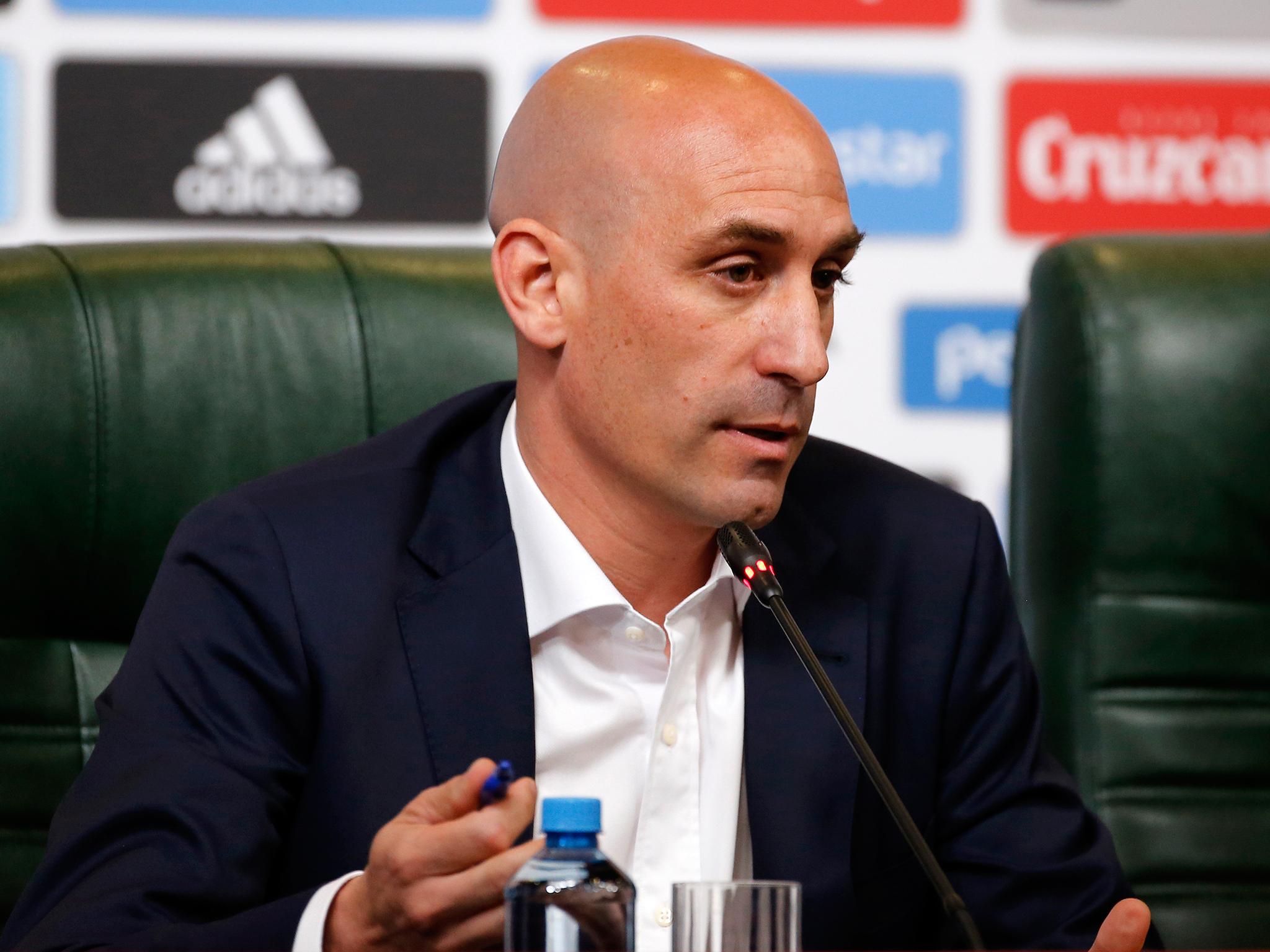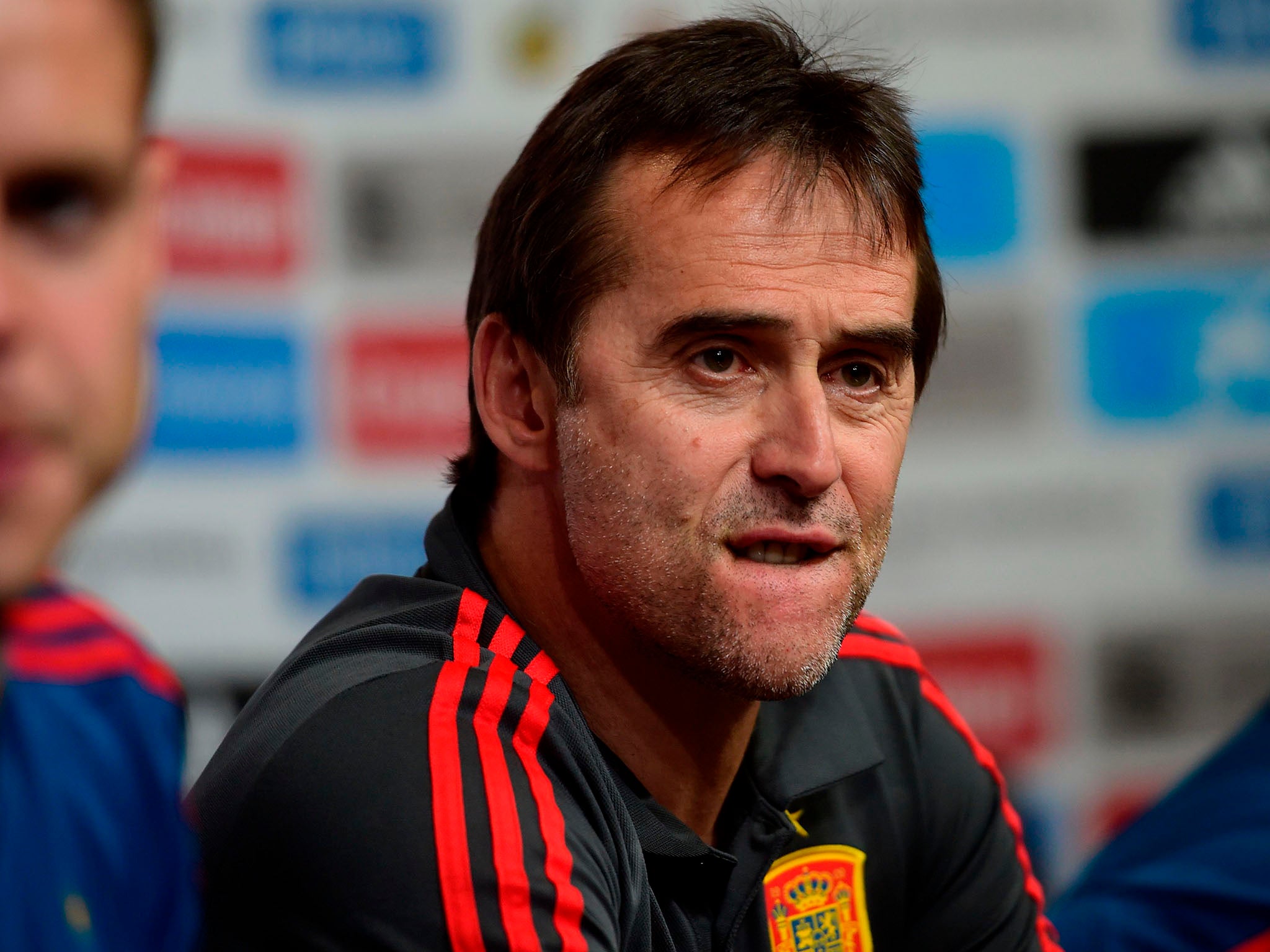Julen Lopetegui sacked: A canon of errors from Real Madrid to Spanish FA sees World Cup unnecessarily in tatters
It would have been so easily avoidable had egos not been allowed to take over

Your support helps us to tell the story
From reproductive rights to climate change to Big Tech, The Independent is on the ground when the story is developing. Whether it's investigating the financials of Elon Musk's pro-Trump PAC or producing our latest documentary, 'The A Word', which shines a light on the American women fighting for reproductive rights, we know how important it is to parse out the facts from the messaging.
At such a critical moment in US history, we need reporters on the ground. Your donation allows us to keep sending journalists to speak to both sides of the story.
The Independent is trusted by Americans across the entire political spectrum. And unlike many other quality news outlets, we choose not to lock Americans out of our reporting and analysis with paywalls. We believe quality journalism should be available to everyone, paid for by those who can afford it.
Your support makes all the difference.After “a morning of high tension” at Spain’s base in Krasnodar, where the agitated players were having a tough discussion with federation president Luis Rubiales and some pleaded to save Julen Lopetegui’s job, the most pertinent question - of many - is how the decision will affect their World Cup.
This, as a few players insisted in the meeting, should stand above all else.
Rubiales later publicly said the federation “will touch as little as possible”, something someway confirmed by the quick internal promotion of assistant Fernando Hierro, but he has still ultimately been responsible for the most sensational story the eve of the World Cup has ever seen.
One of the biggest-name teams in Russia, one of the favourites, have had all their preparation upended.
It immediately makes Spain-Portugal the biggest game of the group stage, too, not least because of how much it will tell about the state of this previously highly-fancied side.
Win, and all the discussion will be about their resolve and focus, and maybe embolden them anew. Lose, and so much could fall apart even more quickly than this situation developed.
That is what so strikes about this story, and what will be even more influential on the players: not just the magnitude of the decision, but the suddenness and abruptness with which everything happened.
The initial spark lit a blaze. The news that Lopetegui would be taking over at Real Madrid itself came out of nowhere, as reflected the by the fact Rubiales didn’t have any real knowledge until Bernabeu president Florentino Perez phoned him five minutes before the announcement.
“We had no idea, not at all, within the federation,” Rubiales said. “There was no negotiation with Madrid, none at all.”

That five minutes was then far, far too little time, and thereby far too much to take. A “furious” Rubiales felt duty-bound to act, cancelling his trip to the Fifa congress on Tuesday morning to return to Krasnodar. He was minded to dismiss Lopetegui on Tuesday night, but consulted the squad on Wednesday morning. Some senior players felt that dismissal would be too much - and too unnecessary - a disruption, something that acquires an extra level of significance since it is said a few were influential in Lopetegui getting the job at the Bernabeu, but that wasn’t enough. Rubiales had had enough. The decision was made - just two days before an opening game against Portugal when they had looked so good.
It is so much for the players to take in, and would have been had it happened a month before the World Cup - when Lopetegui actually signed a new deal - let alone now and when Spain looked in such fine shape.
This is just another mind-boggling element to this story. It was all so needless, so badly handled, and that goes for everyone from Perez and Madrid to Lopetegui and maybe Rubiales.
One irony and extra angle to all of this is that the federation boss used to be a players’ representative with the union, and had an abrasive relationship with the clubs. That has evidently continued with one of those clubs, but can he really be said to have been acting in the players’ best interests here? That remains to be seen, but remains complicated.
On the surface, it’s hard not to have a certain amount of sympathy for Rubiales’ decision, given the way the federation was sidelined and the very pertinent fact that Lopetegui had signed that contract. He then went and negotiated another without letting them know a thing. Some Spanish sources were also later suggesting that a few players did have issue with the fact his Madrid appointment was announced on the eve of the World Cup. There is also the fact that Rubiales is so new in the job, so maybe had to lay a marker... make an impression.

One of the key comments made by the president in an extraordinary press conference - that was said to have caused jaws to drop around the Portuguese camp - was that “it might have been different if we had known earlier, to protect the image of the federation”.
But how will the image of the federation look if they go out in the first round, and have cost themselves the chance at history, by falling back in to historic self-defeating Spanish problems of old?
If “image” is the key concern, it indicates that much of the decision-making was based on pride and emotion, and that immediately raises questions over whether it involved the clearest and coldest thinking, something the speed of it all only further complicated. So, while you can have a certain sympathy for Rubiales on hard principle, this looked a unique situation that required more malleable pragmatism, to prevent what still feels right now as a massive overreaction. The bottom line is that it would have been forgotten about had they won the first game, something now put in so much more doubt.
As with one of the closest parallels - Roy Keane’s departure from the Irish squad on the eve of the 2002 World Cup - it does feel like a situation where everyone should have put pride aside for the greater good.
The question is now about the players’ frame of mind, and whether it can be any way right having been so tortuous and energy-sapping so soon before a big game?

What’s more, absolutely everything that happens at this World Cup for Spain will be viewed within the context of this sacking. It will be the issue that just won’t go away, always there… unless, of course, they just start winning and keep doing so.
The potential flip side to all of this is that the initial disarray gives way to a distinct focus just as quickly as everything else in this story. With the decision now made, the Spanish players may well rally and benefit from the sense of siege that has actually proved hugely valuable for many victorious sides in the past - such as Argentina 1986, Italy 1982 and Italy 2006. They might be a new entry in that lineage, rather than a new Holland or “return to the old Spain”.
Rubiales was keen to stress this in his press conference, too.
“All this is a big blow, but we are training again this afternoon, will stick together and move forward. The players are very focused and they have told me they are fully committed, and will give 100 per cent.”
There’s also the argument that even though some of the Madrid players are said to have liked Lopetegui, it was because he mainly just “facilitated” them and managed their mood. Lopetegui is after all still a coach who failed in his one big club job at FC Porto, and who happened to find himself in charge of the most tactically intelligent group of players in the world. That will go a long way itself, and could yet mean Spain still go a long way without Lopetegui. While they could still do with some of the really senior and serene figures of recent successes like Carlos Puyol and Xavi, this is still a battle-hardened squad with a lot of experience and game intelligence. A certain amount of self-management can come into it by then. The story has already emphatically proven the overbearing power of the club game and could yet prove another growing theory: that such international squads need little more than "light touches", rather than full management.
It’s just that it all seems so much more uncertain now, when it was all so unnecessary - and that doesn’t just apply to Rubiales, who was manoeuvred into a difficult situation. He ultimately felt he had to apply some order.
“The national team is the most important we have, the World Cup is the biggest of all.”
He has now been ultimately responsible for among the biggest of all World Cup stories, and the biggest question leading into Russia 2018.
Join our commenting forum
Join thought-provoking conversations, follow other Independent readers and see their replies
Comments